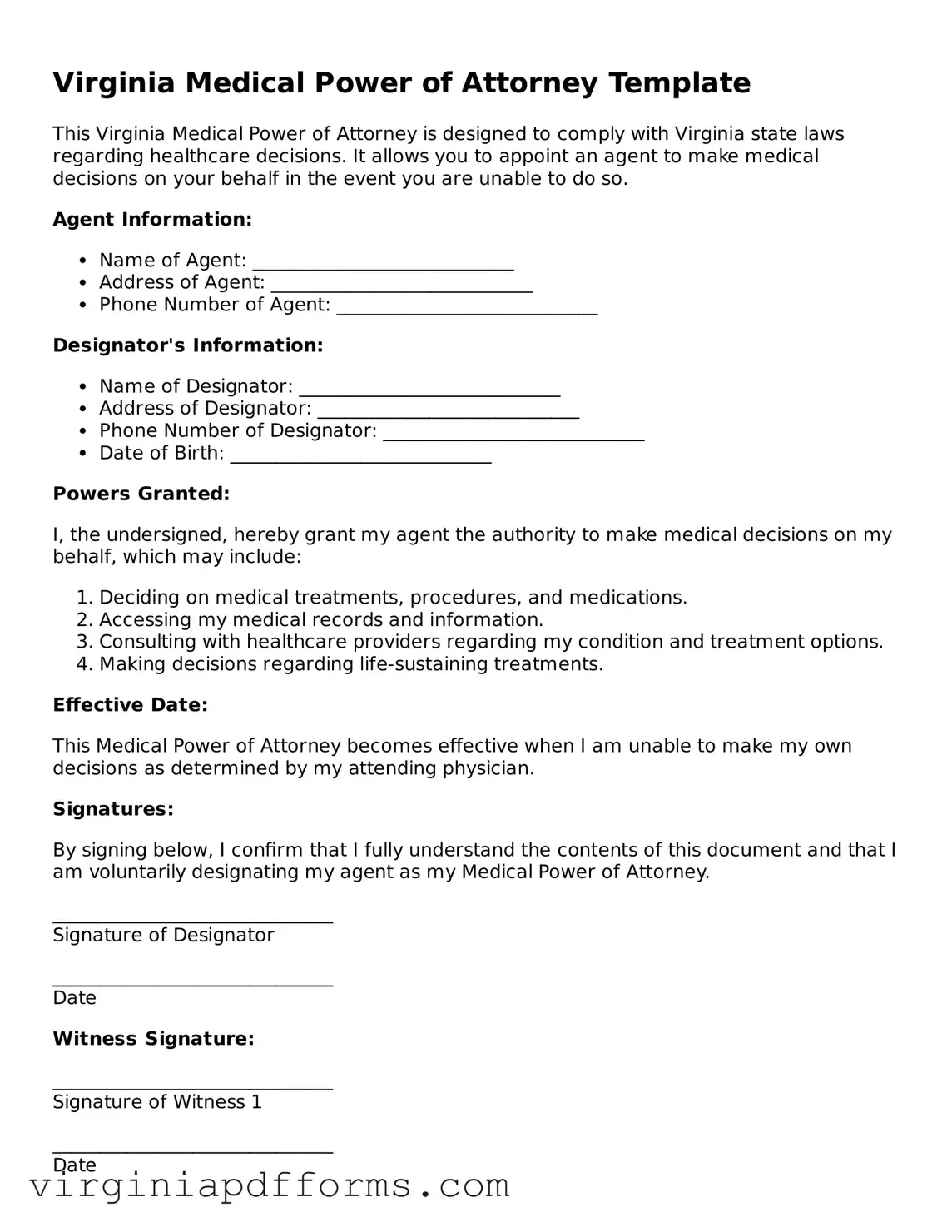Attorney-Approved Virginia Medical Power of Attorney Document
The Virginia Medical Power of Attorney form allows individuals to designate someone they trust to make healthcare decisions on their behalf in the event they become unable to communicate their wishes. This important legal document ensures that your medical preferences are honored, providing peace of mind for both you and your loved ones. Understanding how to complete and use this form is essential for effective healthcare planning.
Access My Document Now

Attorney-Approved Virginia Medical Power of Attorney Document
Access My Document Now

Access My Document Now
or
Free Medical Power of Attorney File
Need this form wrapped up fast?
Finish Medical Power of Attorney online — edit, save, download without effort.